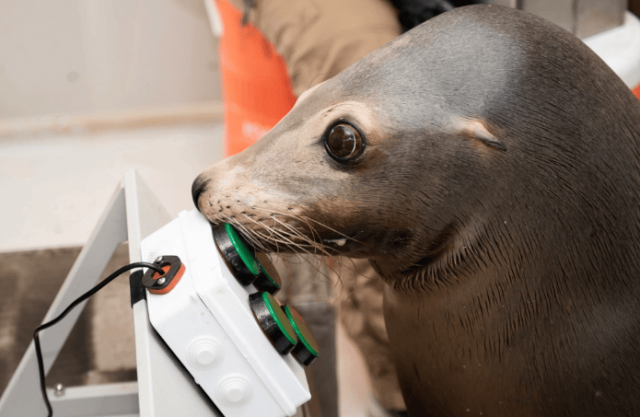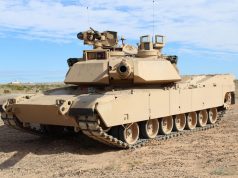
The US Navy’s Marine Mammal Program recently conducted a unique experiment aimed at assessing the cognitive abilities of their sea lions by introducing them to a variety of interactive video games using specially designed touchscreens.
Since 1960s, US Navy has been utilizing marine mammals in their Mine Countermeasures program to detect and recover mines in harbors and other strategic locations. Their natural agility and keen sensory perception allow them to locate mines with precision, significantly reducing the risks faced by human divers.
The sea lions currently deployed in the Marine Mammal Program based in San Diego not only excel at mine detection but also demonstrate their versatility by recovering explosives through cable attachment, while also exhibiting their training to detect and locate enemy divers.
Spike is the gamer sea lion residing in a floating sea pen at San Diego Bay. Among three male sea lions, he was the last to learn video games but the first to complete Navy scientists’ cognitive enrichment training on their newly developed game system.
In the study of California sea lion cognition, Spike’s ability to grasp the concept of controlling a cursor on a screen and advance through increasingly challenging games represents the first documented success in testing the cognitive abilities of these sea lions using an animal-controlled interface.
Initially, the marine mammals underwent training on a cursor-tracking game that required successfully maneuvering a blue dot to meet a black square on the screen. As the training progressed, more demanding iterations of the game were introduced, offering the necessary variability to prevent habituation, a crucial aspect for ensuring the effectiveness of long-term enrichment programs.
“The research possibilities are endless,” stated Winship, the study’s lead researcher, referring to potential interspecies and multiplayer games. He revealed their creation of a game where they can compete against Spike.
“The Enclosure Video Enrichment (EVE) system itself is proof of how much we care about marine mammals,” Winship said. “We built them something that nobody else did. We trained them on it, and now we just get to enjoy watching them love video games.”
However, animal rights organization PETA has raised concerns about the suffering of dolphins, sea lions, and other animals in war zones. The use of animals in warfare not only poses physical risks but also deprives them of their natural way of life, according to recent concerns raised.
“PETA believes that if the situation is too dangerous for a human being, it’s too dangerous for an animal,” said Kathy Guillermo, the vice president of PETA.
In response to animal rights concerns, the Marine Mammal Program asserts that the well-being of dolphins and sea lions is their top priority. According to their statement, the provision of veterinary care has resulted in longer lifespans for these marine mammals in comparison to their wild counterparts.


























